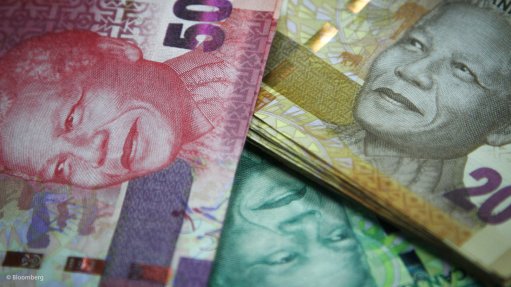
Photo by: Bloomberg
Frost & Sullivan senior economist Craig Parker has cautioned that, despite the International Monetary Fund’s current expectation of 2.9% growth in South Africa’s gross domestic product (GDP) in 2014, this will most likely be revised downward to 2.7%, as global post-recessionary pressures continue to bite into the new year.
He further cautioned that, while global conditions were expected to improve in 2014, South Africa’s potential growth response may be lower than expected if local conditions did not improve.
Parker said the exchange rate would continue to remain under pressure, which would contribute to supply-driven inflationary pressure that would impact the fuel price, which could not be impacted by monetary policy.
In addition, the local manufacturing sector would remain under pressure owing to a lack of demand for exports and higher import prices for inputs as a result of the weaker rand.
Meanwhile, labour unrest and labour market rigidity would drive down competitiveness, curtailing investment potential and portfolio inflows and contributing to the weaker rand, which, in turn, would increase inflationary pressure, leading to further unrealistic wage demands.
“Consumer expenditure will be stifled by high levels of household debt and more expensive imports; however, consumer expenditure growth will still outperform GDP growth, owing to a small increase in employment and salary increases in the tertiary sector,” he commented.
Parker held that South Africa was, unfortunately, highly influenced by international growth factors, including the global financial and investment markets, with the country’s major obstacle to growth and export demand in the past three years being the debt crisis in Europe.
Collectively, Europe accounts for 23% of South Africa’s exports and some 30% of manufactured exports.
“Lack of demand from Europe has led to sustained pressure on our exchange rate as a result of declining portfolio flows, which have traditionally supported our currency.
“This outflow is a global phenomenon, with many emerging markets’ currencies coming under pressure in 2013. South Africa is vulnerable to capital flows as debt-creating flows finance around 80% of the current account deficit,” he said.
Moreover, Parker asserted that the local economy was not expected to hit high growth numbers as a result of a lack of competitiveness on the back of local labour unrest and rigidity in the labour market.
“All the factors that contribute to our lack of competiveness also contribute to keeping much-needed foreign direct investment (FDI) away from our shores,” he said.
The United Nations Conference on Trade and Development estimates that South Africa’s FDI declined by 24% between 2011 and 2012 – a trend expected to continue in the 2013 fiscal year.